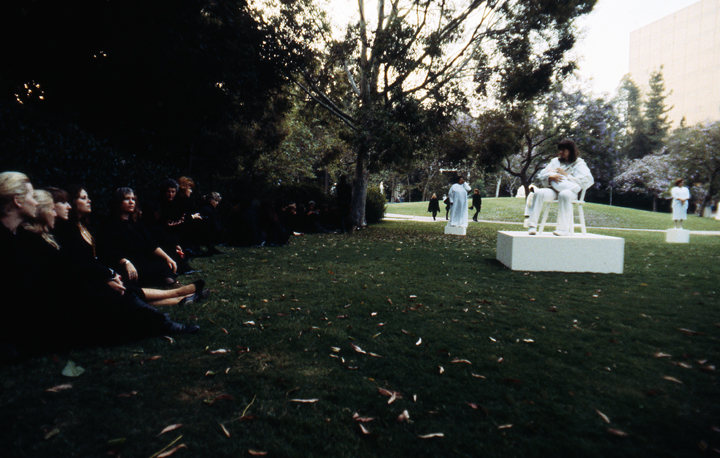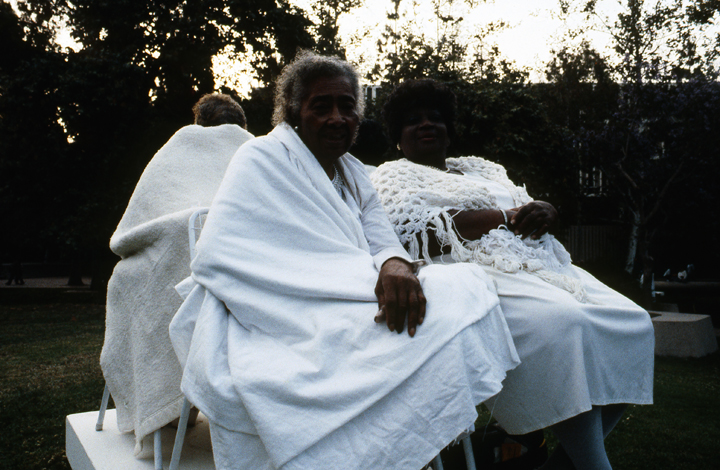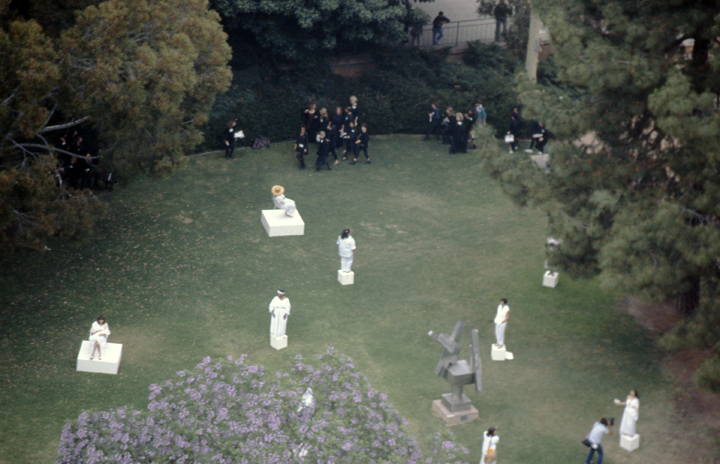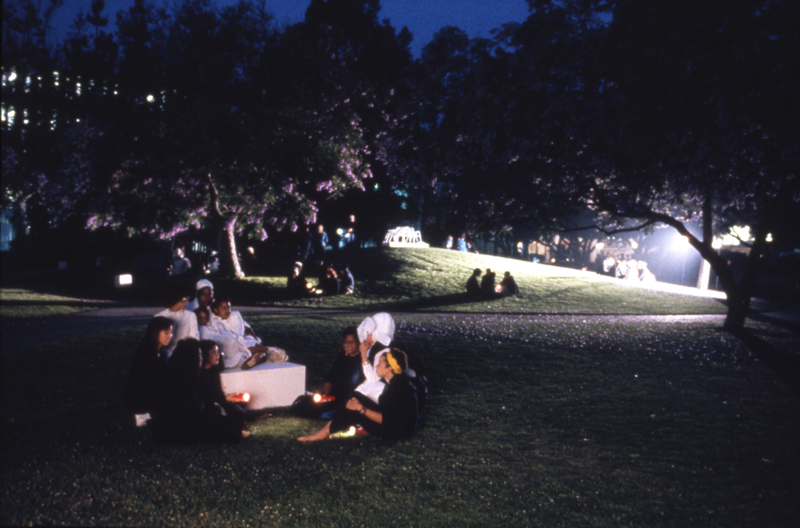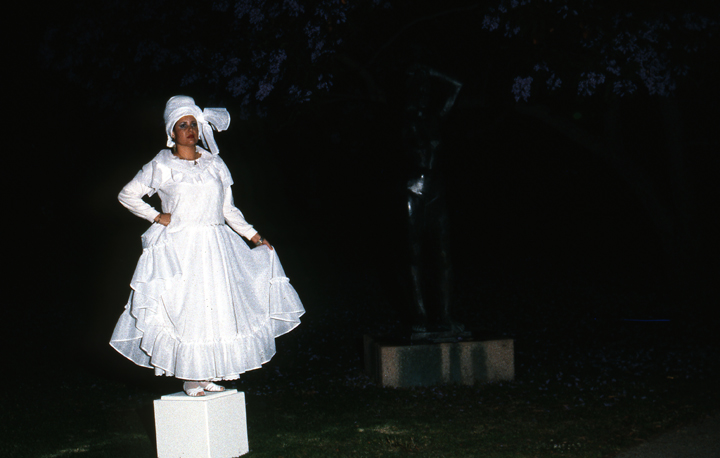Dark Madonna (1985-1986)
Dark Madonna explored attitudes toward race and racism among Los Angeles women in the context of a national xenophobia widely reported in the media. The yearlong production included a conference jointly planned with UCLA’s Center for the Study of Women where scholars considered the historical and contemporary meaning of the Black Madonna and the role of tableau performance in political histories of women and African Americans. Following this large-scale event, Lacy conducted a series of private exploratory discussions on race relations between different groups of women in homes throughout Los Angeles. Their experiences were recorded and woven into a two-part performance soundtrack by composer Susan Stone. The performance began at sunset in UCLA’s Franklin Murphy Sculpture Garden. Fifty women dressed in white posed motionless on white pedestals, while the soundtrack played from speakers in surrounding trees—the first score composed of reports on incidents of racism. At dusk, the soundtrack shifted to conversations about how to heal such prejudices. Dark figures darted from behind the trees throwing black cloths over the white dresses. Following this, 150 women dressed in black wandered in small groups throughout the now dark garden. Like shadows emerging from the sidelines, the groups held flashlights pointed at the ground. They seated themselves in groups on the ground, and joined by the fifty pedestal women, they began unrehearsed conversations about contemporary racial issues between women in Los Angeles, their flashlights illuminating each others faces like small campfires. The 2000 audience members were given flashlights of their own and were invited to join the conversations. The groups stayed in the garden as long as they wanted, the performance continuing well into the night.
Participating artists include Anne Bray, Carol Heepke and Willow Young. Soundtrack by Susan Stone.
Curated by Edith Tonelli for the Frederick Wight Gallery, in the Franklin Murphy Sculpture Garden, University of California, Los Angeles. Co-sponsored by the Center for the Study of Women and the World Arts and Culture Department, Los Angeles, California.
